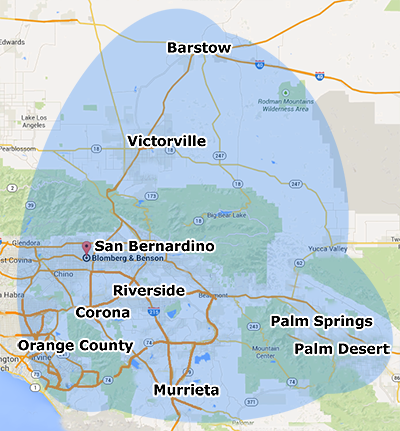Home >> Blog >> California-Dog-Bite-Laws--How-You-Can-Seek-Compensation-for-a-Dog-Attack
California Dog Bite Laws: How You Can Seek Compensation for a Dog Attack
 If you or a family member has been attacked by a dog, you may now face a long road to recovery, including medical bills, injuries, and stress from the trauma.
If you or a family member has been attacked by a dog, you may now face a long road to recovery, including medical bills, injuries, and stress from the trauma.
Different states have different laws about how you can seek compensation for the damages of a dog attack. California's laws can help you hold the dog owner responsible for attacks under certain circumstances. Here's what you need to know about our state's dog bite laws and what paths are open to you after you've experienced this injury.
Strict Liability
Fortunately for dog-bite victims, California is what is known as a "strict liability" state. This means that dog owners can be held responsible for a dog's violent behavior even if the dog has never shown an aggressive tendency before. In some other states, owners are only responsible for attacks if they knew about the dog's violent nature but did not take precautions to protect others.
You have a better chance of receiving compensation for damages in California because the state takes such a hard line about dog bites.
Owner Responsibility and Negligence
Dog bites are the most protected area of the law for injuries that occur from a dog attack. But there are some exceptions to owner liability, even for bites.
Trespassing
If you were trespassing on private property and were subsequently bitten by a dog, your case will not stand. However, if you were invited to the property as a guest or employee and had a perfectly legitimate reason for being there, then your case will be much stronger.
Provocation
California law is unclear about the exact role provocation has in a dog-bite defense. However, if you provoked the attack by baiting or injuring the dog, you may not succeed in seeking damages for your injuries. Generally, the provocation defense is looked at by the judge on a case-by-case basis.
For example, a dog owner may defend the dog's actions by saying you provoked the dog. In reality, you might have only approached the dog to pet the animal. This type of provocation defense will usually not hold up in court.
Police Work
Dogs who work alongside police forces operate outside of usual dog-bite law restrictions. If the dog is working in the pursuit of a suspect, in the defense of a police officer, in the order of a warrant, or in the investigation of a crime, the dog is exempt from strict liability statutes.
Non-Bite Injuries
Dog bites that occur in public places when the owner should be taking greater pains to keep a dog in check are the clearest cut—owners are always responsible for the safety of others when bringing their dogs into public places.
If you were simply attacked but not bitten during the attack, the law becomes more complex. With dog bites, dog owners will not be able to use these common excuses as a legal defense for a biting dog:
- My dog has never been violent before.
- I always keep my dog in a secure fenced yard, away from passersby.
These defenses, however, may work for injuries other than bites caused by a dog attack. For example, if a dog breaks through a fence and jumps on you, knocking you down and causing a head injury, you must prove owner negligence. If the fence was in disrepair, thus allowing the dog to get out and knock you down, the owner would likely be liable for your injuries.
Another situation where a dog owner can still be liable for an attack when the dog does not bite is failing to put down a dog that has previously violently attacked a human being. Even if the dog in question did not bite you this time, you would not have been injured had the owner followed the law.
Criminal Charges
You might not have considered filing criminal charges because of a dog attack, but sometimes dog owners operate outside the law and put others in danger. A dog owner is criminally negligent if they have failed to properly restrain or deal with dangerous or vicious dogs.
Dangerous dogs are dogs who have acted violently against another person twice within the past three years, have previously bitten another person (even if the bite was not severe), or have killed or attacked other animals (like small dogs or cats) when not at home.
Vicious dogs may receive even more severe penalties. These are dogs who:
- are owned by dog fighters or have a history of dog fighting. Dog fighting is illegal, and if the owner participates in dog fights or provides animals to those who facilitate dog fights, that person is criminally as well as civilly responsible for the actions of any dog under his or her care.
- have a history of aggressive attack, such as an attack that maims or kills a person.
If a dangerous or vicious dog attacks a person and the person dies as a result of the attack, the owner may be charged with a felony.
If you were attacked by a dog, you need to act quickly. Like with most civil charges, dog attacks have a statute of limitations lasting two years from the day of injury. It's important that you contact a personal injury attorney as soon as possible.
For more information on California dog bite laws, contact us at Blomberg, Benson & Garrett.

 If you or a family member has been attacked by a dog, you may now face a long road to recovery, including medical bills, injuries, and stress from the trauma.
If you or a family member has been attacked by a dog, you may now face a long road to recovery, including medical bills, injuries, and stress from the trauma.
